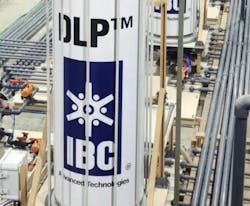Prime Lithium and IBC to Produce Carbon Neutral Battery-Grade Lithium and Clean Water in Wyoming
Prime Lithium (Prime) has entered a strategic partnership with IBC Advanced Technologies to develop a large-scale battery-grade lithium hydroxide and carbon storage project in Wyoming using IBC's proprietary Direct Lithium to Product (DLP) process.
The DLP process provides a rapid, direct route to produce environmentally friendly battery-grade lithium end-products. This process will help support Prime's Project Sweetwater, which aims to produce 8,000 tons of lithium hydroxide annually - with plans to expand to 35,000 tons annually - and to geologically store large volumes of CO2 while producing clean water for the region.
Through Project Sweetwater, Prime hopes to deliver domestically produced lithium in a sustainable, environmentally responsible manner, adding to the overall value chain serving the nation's EV, devices, and grid energy storage sectors.
For every 1 kg of battery-grade lithium hydroxide produced, Project Sweetwater will create 22 tons of carbon dioxide disposal and storage capacity and approximately 370,000 gallons of clean water, all with minimal waste. The project's lithium product will also be supplied with attaching carbon and water offsets, enabling manufacturers to provide battery components that are carbon- and water-neutral in their products.
With an estimated 1.8 billion tons of brine mineral resources and targeting over 5 billion tons of brine, Prime expects the Project to be one of the largest lithium hydroxide production centers and carbon storage projects in the world.
Additionally, the Project's process methodology can assist in alleviating pressure on the Colorado River System so it can continue to serve as an economic artery for the region, including powering massive hydroelectric dams required for the energy transition. The Project has an initial clean water resource of 4 billion gallons, with the scale to increase this resource to 558 billion gallons.
In preparation for delivery, the multibillion-dollar project already features well-established infrastructure, including "Direct to Market" rail and interstate highways to all major battery plant centers and other US customers. With these factors in place, Project Sweetwater is near build-ready, and production trials are scheduled for later in 2024.
About the Author
Breanna Sandridge, Senior Editor
Breanna Sandridge is senior editor for EnergyTech and Microgrid Knowledge, both part of the energy group at Endeavor Business Media.
Prior to that, Breanna was managing editor for Machinery Lubrication and Reliable Plant magazines, both part of Noria Corp. She has two years experience covering the industrial sector.
She also is a 2021 graduate of Northeastern State University (Oklahoma) with a Bachelor's in English.
